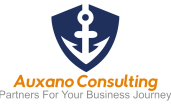Leadership is not a one-size-fits-all concept. Some possess the vision and charisma to inspire, while others may struggle to connect and collaborate. In today’s dynamic business landscape, cultivating the next generation of leaders is crucial for organizational success. What’s needed is a new breed of leadership: next-gen leaders who are adaptable, tech-savvy, and ready to navigate the challenges of the future. Effective leadership development programs are the key to ensuring a seamless transition of leadership and fostering long-term sustainability and growth. In this blog, we’ll delve into the proven strategies to develop these next-gen leaders.
- Leadership Development Programs:
Implementing structured leadership development programs is a cornerstone for grooming next-gen leaders. These programs typically include a combination of formal training, mentorship, and hands-on experiences. Companies like General Electric (GE) have been pioneers in this regard, with their renowned Leadership Development Program (LDP). GE’s LDP exposes emerging leaders to various business functions, allowing them to develop a holistic understanding of the organization.
- Mentorship and Coaching:
Connecting emerging leaders with seasoned mentors is a potent driver of professional development. Mentors offer valuable insights, guidance, and a supportive environment for protégés to navigate challenges. A prime example is Microsoft’s CEO, Satya Nadella, who credits his success to the guidance received from mentors. Instilling a mentorship culture promotes collaborative learning, ensuring the transfer of seasoned leaders’ wisdom to the next generation. Additionally, coaching plays a pivotal role in helping leaders acquire new skills, overcome obstacles, and attain their objectives.
- Encourage Continuous Learning:
Leadership is a dynamic skill that thrives on continuous learning. Cultivating a culture of ongoing education is vital, as it enables leaders to acquire fresh knowledge, skills, and perspectives, enhancing their performance and creativity. Continuous learning facilitates personal and professional growth, expands leaders’ potential, and equips them to navigate evolving environments. Offer access to workshops, conferences, online courses, and other valuable learning resources. A notable illustration is Google’s “20% Time,” encouraging employees to dedicate part of their work hours to personal projects. This autonomy not only fuels innovation but also allows leaders to develop skills in areas they are passionate about, fostering a holistic approach to leadership development.
- Promote Inclusive Leadership:
Next-gen leaders must be adept at leading diverse teams. Diversity is a source of richness and innovation, as it exposes them to different ideas, opinions, cultures, and backgrounds. Learning from diversity helps them to broaden their horizons, challenge their assumptions, and appreciate different viewpoints. Inclusive leadership, which values and leverages differences, is key to organizational success. IBM is a notable example, with its commitment to diversity and inclusion. The company’s emphasis on embracing diversity in leadership has not only enhanced its corporate reputation but has also contributed to a more innovative and agile work environment.
- Provide Challenging Opportunities:
Leadership skills are honed through real-world challenges. Offering emerging leaders opportunities to lead critical projects or cross-functional teams accelerates their development. Facebook’s Sheryl Sandberg, known for her influential book “Lean In,” emphasizes the importance of taking on challenges. Facebook encourages employees to step out of their comfort zones, fostering a culture where leadership is not just a position but a mindset cultivated through tackling meaningful challenges.
Bonus Tips:
1. Digital Fluency: Ensure leaders possess tech skills for innovation. IBM’s “Digital Badges” program, rewarding proficiency in digital skills through online courses, is a model for cultivating a digitally fluent leadership.
2. Authentic Leadership: Inspire authenticity and empathy. Microsoft’s Satya Nadella, with his approachable leadership style, sets the bar for creating an open and collaborative organizational culture.
3. Continuous Feedback: Prioritize regular feedback in performance management. A robust system, akin to Google’s “Project Oxygen,” fosters continuous leader growth and improvement.
4. Rotational Assignments: Cultivate a holistic skill set through cross-functional exposure. Procter & Gamble’s innovative programs ensure leaders are adaptable to the dynamic needs of the organization.
Conclusion:
Developing next-gen leaders is a nuanced journey, requiring a diverse mix of structured programs, mentorship, continuous learning, and inclusive leadership practices. Exposure to challenging opportunities is crucial for honing leadership skills. Organizations adopting these strategies not only secure their leadership pipeline but also cultivate a culture of innovation and adaptability. By blending these approaches, organizations pave the way for a leadership legacy that thrives.
Ready to Invest in Future Leaders?
Contact Auxano for tailored guidance. Our customized leadership development programs can help your organization achieve its goals and vision. Don’t miss the opportunity to shape the leaders of tomorrow. Contact us today to embark on the journey of leadership excellence.
(Written by Vineeta, Feature Image sources and credits:FreePik)
Feel free to connect with Linnet Dave, Auxano’s Director and Executive coach on linnet@auxano-consulting.com or connect with her at +919820668179 for any queries on the subject and if you need to get a customized learning Intervention done for your organization.



